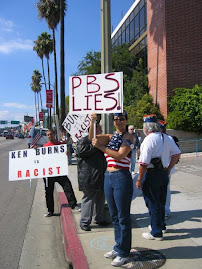As Labor Day is celebrated, we should take pause to recognize the rich history of community building via labor struggle. Ventura County provides inspiring examples of people coming closer together as they demanded fair wages and improved working conditions. On the Oxnard Plain, for example, two bitter strikes took place involving sugar beet farm laborers (betabeleros, as they would be called) during the early decades of the twentieth century. In resisting a 50% wage cut in the thinning of sugar beets, Japanese and Mexican betabeleros united in forming the Japanese Mexican Labor Association in February of 1903. After a month-long struggle and a dramatic downtown shot-out resulting in five wounded and one fatality, growers agreed to revert to the pre-strike wage rate. The JMLA strike of 1903 is particularly significant in the history of the United States as it serves as a brilliant and unique example of intercultural labor solidarity.
During the Great Depression’s nadir, in August of 1933 Oxnard betabeleros and the Cannery Agricultural Worker Industrial Union again resisted the curtailing of the wage scale, this time by 12%. Although ultimately unsuccessful, the 1933 betabelero strike demonstrated the strength and openness of the Mexican community in drawing upon similar intercultural support from the Filipino Protective League, Ella Winter (wife of the renowned muckraking journalist Lincoln Steffens) and the National Committee for the Defense of Political Prisoners, and Al Wirrin of the American Civil Liberties Union.
Prior to the nation’s entrance into WWII, a county-wide citrus strike arose. Similar to the demands of the previous two disputes, workers in lemon and orange orchards and packinghouses demanded union recognition, improved working conditions, and a 12% raise in wages. Simultaneously, families of the citrus industry in Rancho Sespe, Somis, and other communities banded together in creating life sustaining cultural events and fundraisers. Those who found themselves displaced from citrus company housing also assembled surrogate government councils within a federal Farm Security Administration camp in Oxnard of the likes detailed in John Steinbeck’s The Grapes of Wrath. As in 1933, this strike to increase the wages of workers ended in failure. The effort for economic justice, however, presaged the Post-WWII demands for equal treatment under the law. This strike, in particular, continues to live in the cultural memory of Ventura County residents as an inspiring saga of labor and community solidarity.
Recognizing the tradition of community and labor activism in Ventura County, during the fall of 1958 the Community Service Organization sent a person named Cesar Chavez to create a chapter to establish citizenship courses, voter registration drives, and non-partisan get out the vote campaigns within the La Colonia barrio of Oxnard. Moreover, CSO members throughout the county came to challenge the exploitive use of bracero agricultural laborers (federally subsidized Mexican guest workers). Cesar Chavez’s experiences as a CSO organizer, being once himself a betabelero in Ventura County, and an intermittent resident introduced him to the degrading situations that workers in fields encountered; this included but was not limited to the absence of restrooms, drinking water, the backbreaking use of the infamous el cortito (the short-handle hoe), and wages insufficient to support a family. Indeed, the CSO’s successful leveraging of Ventura County’s community assets for the betterment of labor answered a question that he held: Could an effective farm workers union be created to address these issues? The answer was Si Se Puede (yes it can be done)!
So as many of us may have the privilege of enjoying this three day holiday weekend, we must commemorate the importance of community in protecting and advancing the interests of labor everywhere.
fpb
Friday, August 31, 2007
Subscribe to:
Post Comments (Atom)


1 comment:
Right on the money, Frank. By the way, I noticed that A.L. Wirin, whom you mention, also filed a brief in the Korematsu case, which challenged the internment of Japanese-Americans during World War II. That's interesting to me because I'm writing a report today to encourage a university press to reissue Carey McWilliams's book on that subject, Prejudice (1944).
Post a Comment